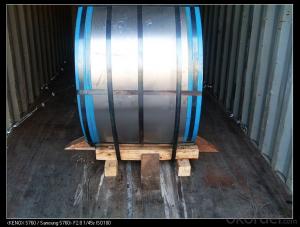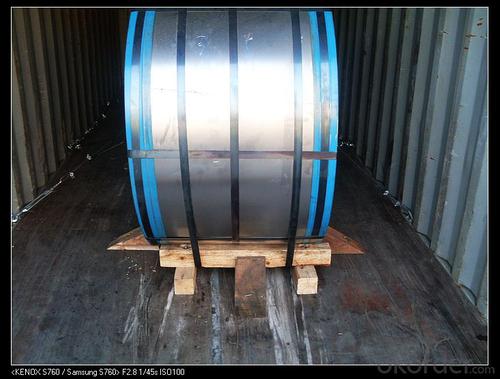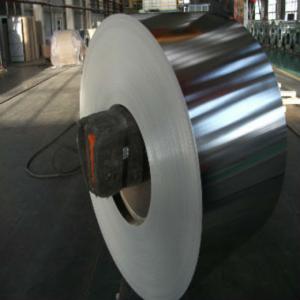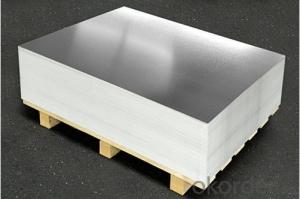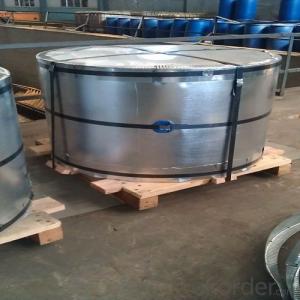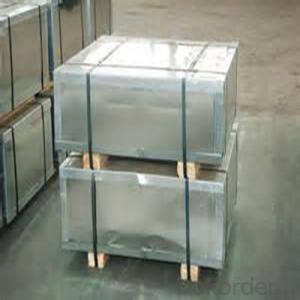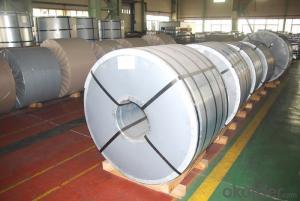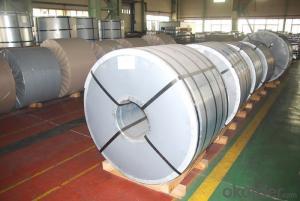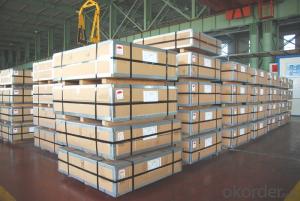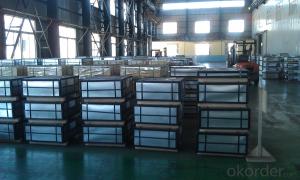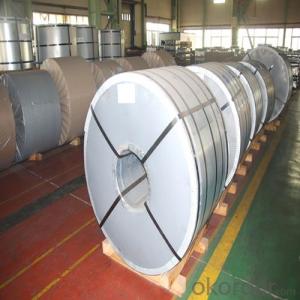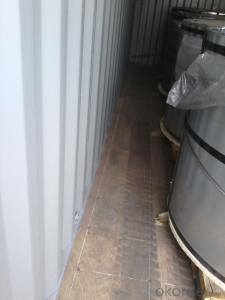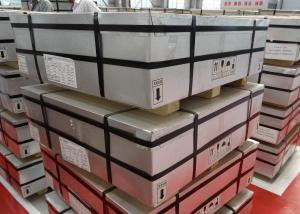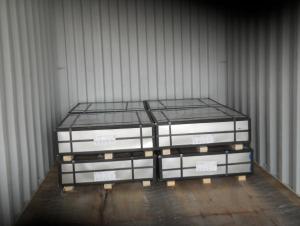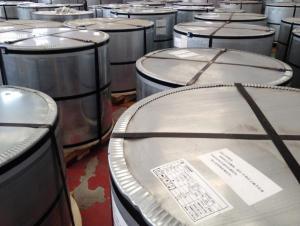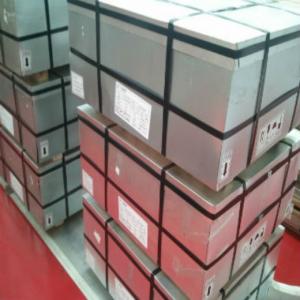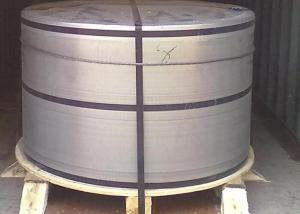Prime Tinplate for Metal Packing ETP sheet Coils
- Loading Port:
- Shanghai
- Payment Terms:
- TT OR LC
- Min Order Qty:
- 100 m.t.
- Supply Capability:
- 40000 m.t./month
OKorder Service Pledge
OKorder Financial Service
You Might Also Like
Structure of Prime Tinplate for Metal Packing ETP sheet Coils Description
| Steel Type | MR | ||
| Temper(BA&CA) | T1~T5, DR8, DR9 | ||
| Coating | 1.1~11.2g/m2 (Both Equal and Differential) | ||
| Thickness and tolerance | 0.15~0.50mm(Tolerance: _+0.01 mm) | ||
| Width & tolerance | 300~1000mm (Tolerance: 0~3mm) | ||
| Cut length & tolerance | 450~``50mm (Tolerance: 0~3mm ) | ||
| Coil inside diameter | 420/508mm | ||
| Coil Weight | 3~10 MT | ||
| Passivation | 311 | ||
| Oiling | DOS | ||
| Surface Finish | Bright, Stone, Silver, Matte | ||
| Packaging | Seaworthy Standard with wooden pallet | ||
| Standards Available | GB/T2520, JIS G3303, ASTM A623M & EN10202 | ||
| Special specitications are available on request. | |||
Main Features of Prime Tinplate for Metal Packing ETP sheet Coils
Tinplate can ensure food hygiene and minimize the possibility of corruption, effectively
prevent the danger to health, but also in line with modern convenience in tinplate packaging
of canned food diet, rapid demand, tea packaging, coffee packaging, health careproduct
packaging, candy wrappers, cigarette packaging, gift packaging, food packaging containers
are preferred.As well as other miscellaneous cans of the oils and fats cans, chemicals
cans, beverage cans, spray cans, and and so on on.
Prime Tinplate for Metal Packing ETP sheet Coils Images
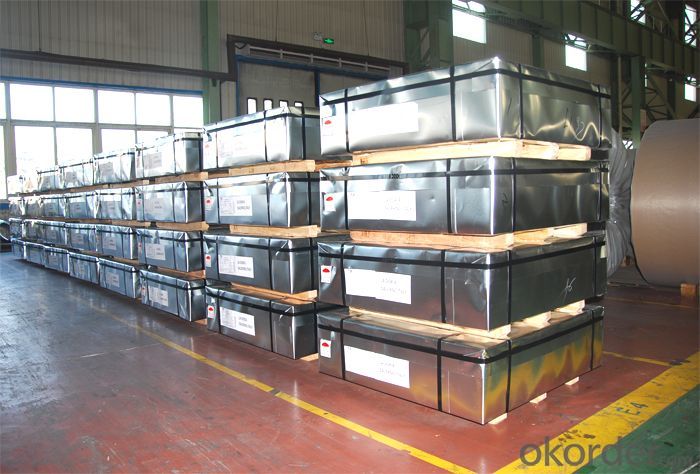
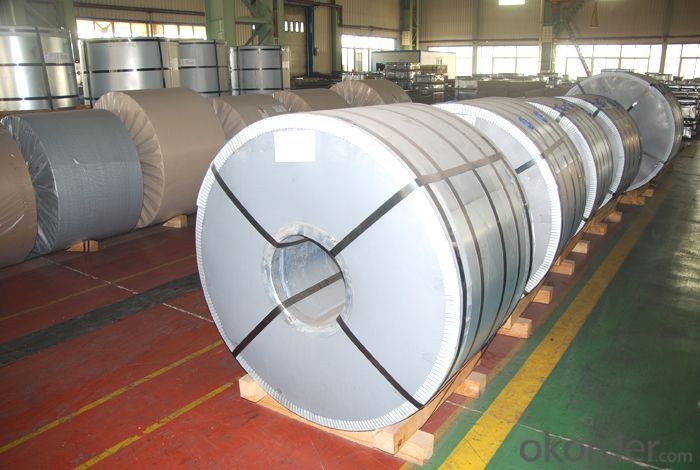
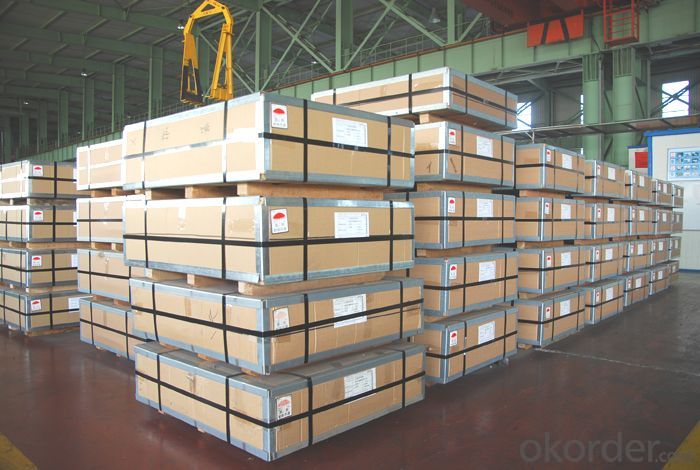
Prime Tinplate for Metal Packing ETP sheet Coils Specification
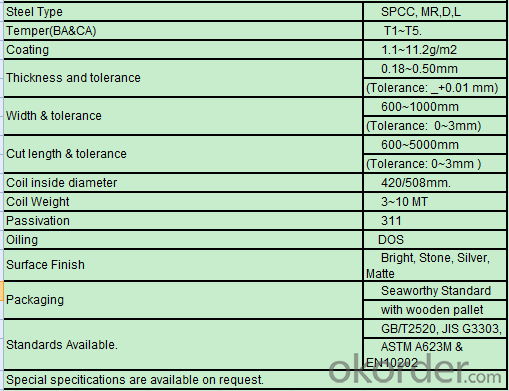
FAQ of Prime Tinplate for Metal Packing ETP sheet Coils
How long does it take to get the product if i place an order?
With the process of your requirements,we will pack and deliver in 3-7 days.If it is by sea shipment,it will take 15-45 days depending on different locations.
- Q: What are the different ways to open tinplate cans?
- There are several different ways to open tinplate cans. The most common method is to use a can opener, which is a handheld device specifically designed for this purpose. Another option is to use a knife or a pair of scissors to carefully pierce and cut open the lid. In some cases, cans may have pull tabs or easy-open lids that can be peeled back without the need for any tools. Additionally, there are electric can openers available that automate the process for convenience.
- Q: What are the main applications of tinplate in the gardening industry?
- Tinplate is commonly used in the gardening industry for various applications such as plant pots, seed containers, watering cans, and garden tools. Its corrosion-resistant properties make it an ideal material for outdoor use, ensuring longevity and durability for these gardening products.
- Q: What are the different printing techniques used on tinplate?
- Some of the different printing techniques used on tinplate include lithography, offset printing, screen printing, and digital printing.
- Q: How is tinplate recycled and what are its recycling rates?
- Tinplate is recycled through a process called "tinplate recycling" where it is collected, sorted, and melted down to create new products. The recycling rates of tinplate vary depending on factors such as regional recycling infrastructure, collection efforts, and consumer awareness. However, on average, tinplate has a relatively high recycling rate of around 80-90% in many developed countries.
- Q: How does tinplate compare to plastic-coated steel in terms of properties and applications?
- Tinplate and plastic-coated steel have different properties and applications. Tinplate is a thin, lightweight steel sheet coated with a layer of tin, which provides excellent corrosion resistance, solderability, and aesthetic appeal. It is commonly used in food and beverage packaging, as well as in the manufacturing of aerosol containers, electronic components, and various consumer products. On the other hand, plastic-coated steel is steel that is coated with a layer of plastic, typically through a process called extrusion. This coating enhances the steel's durability, impact resistance, and chemical resistance, making it suitable for applications that require protection against harsh environments or harsh handling. Plastic-coated steel is often used in construction, automotive, and electrical industries, where strength and corrosion resistance are crucial. In summary, tinplate is preferred for applications that require corrosion resistance, solderability, and a visually appealing finish, such as food packaging. Plastic-coated steel, on the other hand, is more suitable for applications that demand enhanced durability, impact resistance, and chemical resistance, like in construction or automotive industries.
- Q: Can tinplate be used for packaging of perishable goods?
- No, tinplate is not suitable for packaging perishable goods as it is not airtight and does not provide sufficient barrier properties to prevent spoilage or contamination.
- Q: Can tinplate be used for chemical storage containers?
- Yes, tinplate can be used for chemical storage containers. Tinplate is a type of steel coated with a thin layer of tin, which provides excellent corrosion resistance. This makes it suitable for storing various chemicals as it helps to prevent chemical reactions and preserve the integrity of the container.
- Q: How does tinplate packaging contribute to food safety?
- Tinplate packaging contributes to food safety by providing a protective barrier against external factors that can contaminate or spoil the food. The tin coating acts as a barrier, preventing oxygen, moisture, light, and other contaminants from entering the package, ensuring the food inside remains fresh and safe for consumption. Additionally, tinplate packaging is durable and resistant to damage, reducing the risk of physical contamination. Its ability to maintain the integrity and quality of the food over extended periods further enhances food safety.
- Q: How is tinplate affected by extreme temperatures?
- Tinplate is minimally affected by extreme temperatures, thanks to its excellent heat resistance properties. It can withstand high temperatures without warping, melting, or losing its shape, making it a reliable material for a wide range of applications.
- Q: What are the environmental impacts of using tinplate?
- The environmental impacts of using tinplate include deforestation due to the extraction of tin ore, air and water pollution from mining and smelting processes, and the release of greenhouse gases during production. Additionally, the disposal of tinplate products can contribute to landfill waste.
Send your message to us
Prime Tinplate for Metal Packing ETP sheet Coils
- Loading Port:
- Shanghai
- Payment Terms:
- TT OR LC
- Min Order Qty:
- 100 m.t.
- Supply Capability:
- 40000 m.t./month
OKorder Service Pledge
OKorder Financial Service
Similar products
Hot products
Hot Searches
Related keywords
